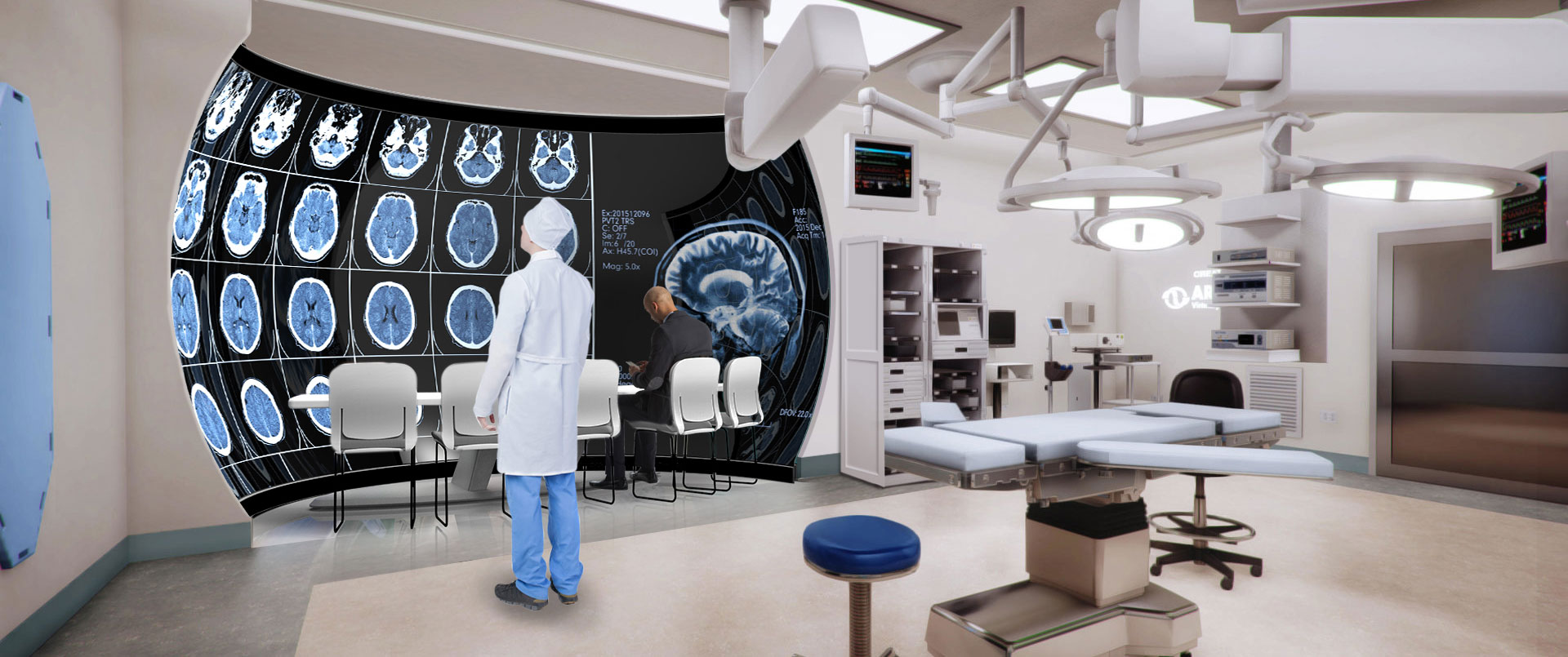Augmented reality for surgical procedures
When people think of augmented reality, their minds probably drift towards video games and apps promising a virtual reality experience. What they may not think of are the surgical procedures facilitated by augmented reality. Though it’s still in the early stages, AR guided surgery is a billion dollar market in the healthcare industry.
AR guided surgery functions through the use of immersive wraparound screens. During surgical procedures, with Immersive FX’s innovative technology, rather than use a headset, medical professionals can employ a life-size screen to map digital models onto a patient. These maps, which may highlight information from CT or X-Ray scans, can be used to guide the surgeon’s tools. This groundbreaking technology has been used to reduce the time and mental effort involved in surgery.
The future of surgical healthcare
AR surgery has been shown to enhance the efficacy of many surgical procedures. One of the most crucial resources when operating on the heart or any other key organs is time, and the use of 3D models to guide surgery allows doctors to make connections between the real and the virtual far more quickly. Instead of continually referencing other scans or manually tracking the function and movement of every medical device being used, augmented reality screens allow medical professionals to easily monitor crucial surgical procedures.
Additionally, AR guided surgery is a minimally invasive procedure, making it a desirable option for doctors and patients alike. Minimally invasive surgery is the primary method used by surgeons as opposed to open surgery, where a large incision is made to view the surgical area. In minimally invasive surgery, smaller incisions are made and cameras are inserted for practitioners to see the area. With the use of immersive AR screens, physicians can more easily plan and carry out these more noninvasive procedures.
Striving for perfection
As surgical technology continues to advance, more and more surgeons across the country are gaining access to augmented reality solutions for healthcare applications. Though it may not be appropriate for all surgical procedures, AR has clear benefits for the completion of minimally invasive surgery, and it is making strides in other forms of medical techniques as well. Furthermore, medical students have been using augmented reality to practice surgeries for years, so augmented reality in healthcare is on its way to becoming a standard in the industry.
Augmented reality is a valuable tool for guiding surgical procedures. The advent of AR for surgery is just the beginning of a series of surgical advancements to improve preparedness and efficiency in the operating room. If you’re seeking the most successful surgical outcome for the least time and money, augmented reality is where you should set your sights.

